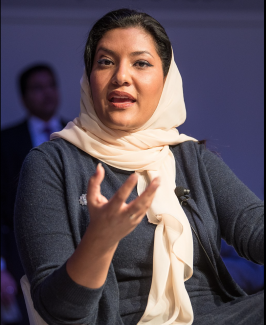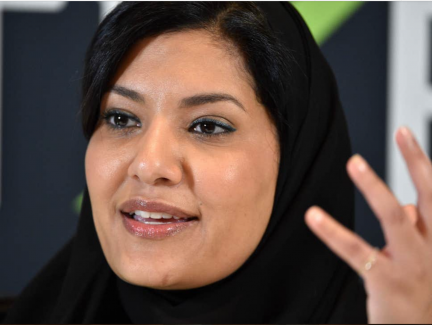By Roland Flamini
On July 8, Princess Reema Bint Bandar Bin Sultan Al Saud presented her credentials to President Trump as the Saudi kingdom’s new ambassador to Washington. She told Trump she looked forward to “working with your administration to advance the strategic relationship and friendship between our two countries and people.” A week later, the U.S. House of Representatives delivered their own message of welcome by voting to halt Trump’s planned sale to Saudi Arabia and the United Arab Emirates of guided missiles and other weapons worth billions of dollars.

Princess Reema Bint Bandar Bin Sultan Al Saud at the Washington Economic Forum in Davos in January 25, 2018. Photo by Washington Economic Forum/ Boris Baldinger
The vote was an expression of Congressional opposition to the Saudi-Emirati conflict in Yemen, which the UN has called “the world’s worst humanitarian crisis.” The vote also delivers a rebuke to the Trump administration for failing to censure the Saudi government for the murder in Istanbul of journalist Jamal Khashoggi, which western intelligence agencies concluded had been ordered by Crown Prince Mohammad Bin Sultan, the desert kingdom’s de factor ruler. Trump is expected to veto the weapons’ ban, but the vote is an early warning to the princess of the animosity her country faces at the political and public level.
Princess Reema headed the Saudi sports authority before she was named envoy to the United States in February. The embassy has been without an ambassador since October 2018, when her predecessor left Washington in something of a hurry following the Khashoggi killing.
Princess Reema – the first female ambassador in Saudi history -– spent her youth in Washington where her father, Prince Bandar Bin Sultan, was ambassador for more than 20 years. The princess attended high school at the Islamic Saudi Academy (formerly located in Alexandria, Va.
, now in Herndon) and is a graduate of George Washington University.

